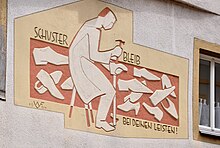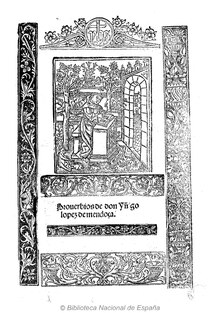Proverb
The proverb (from the Latin proverbium) is a type of paremia, defined as a sententious statement of known origin and often with authorship, whose clearest characteristics are antiquity, the serious tone, the idiomatic gradation, the potential variation and the preferably cult use.
Although difficult to classify, some families of proverbs could be distinguished, randomly stated as axioms, aphorisms, adages or even sayings. Thus, for example, the group of Biblical proverbs, headed by the Book of Proverbs; or else the paremiological set in Greek and Latin, the result of the two great cultures of classical Antiquity or the Greco-Roman period of Antiquity; in addition to the so-called 'oriental proverbs'. Collections enunciated in this way can also be found in many other languages or dialects. Among the already classic works of Spanish literature we can mention the Proverbs and Songs by Antonio Machado.
Compilations
On a world scale one could cite ancient collections of proverbial constructions such as:[citation needed] the Hindu Panchatantra, the Gnomic (poetry from ancient Greece); the Hávamál of the Scandinavians; the Welsh Triads, from Brittany; or the aforementioned Book of Proverbs, attributed to the Israelite King Solomon.
There were also many collections of 'proverbs' during the Middle Ages, such as the book by Don Sem Tob, published during the reign of Pedro I of Castile, or those by Fray Anselm Turmeda in Catalan.[ citation required] Late in the Renaissance, already in the 16th century Erasmus included among his writings a collection of adagios.
Known authors of interesting collections of proverbs, sayings, maxims, etc., were, for example, the Spanish Hernán Núñez de Toledo, the Flemish and German Gruters, the English Howell, Ray, Fielding and Kelly, or the Cornazzanos in Italy.[citation required]
In painting
The idea of the proverb has been represented in curious paintings such as those painted by Pieter Brueghel the Elder, and alternatively titled or translated into Spanish as Flemish Proverbs or Dutch proverbs.
Contenido relacionado
Juan Jose Millas
Ralph Chub
Virgil



